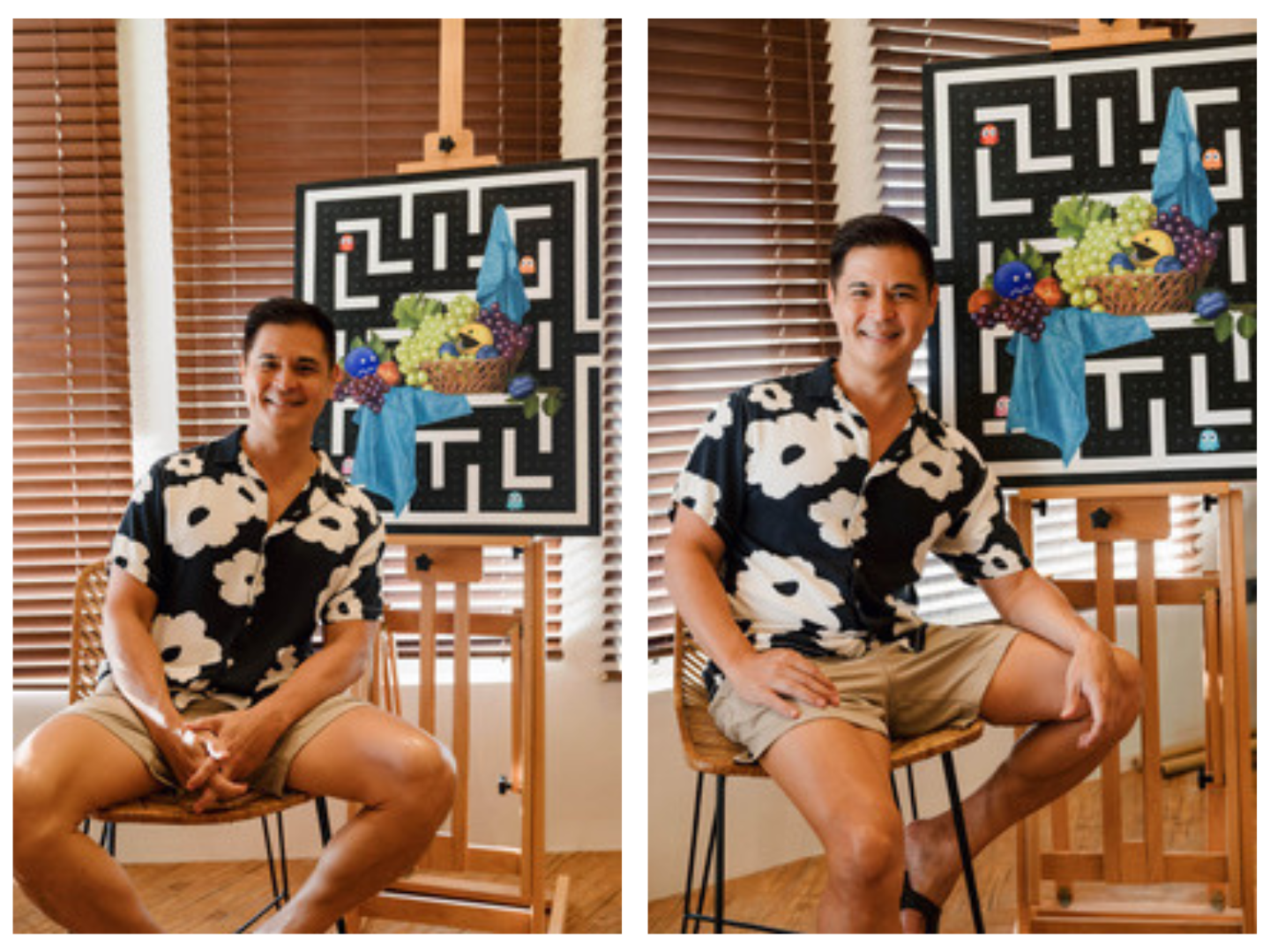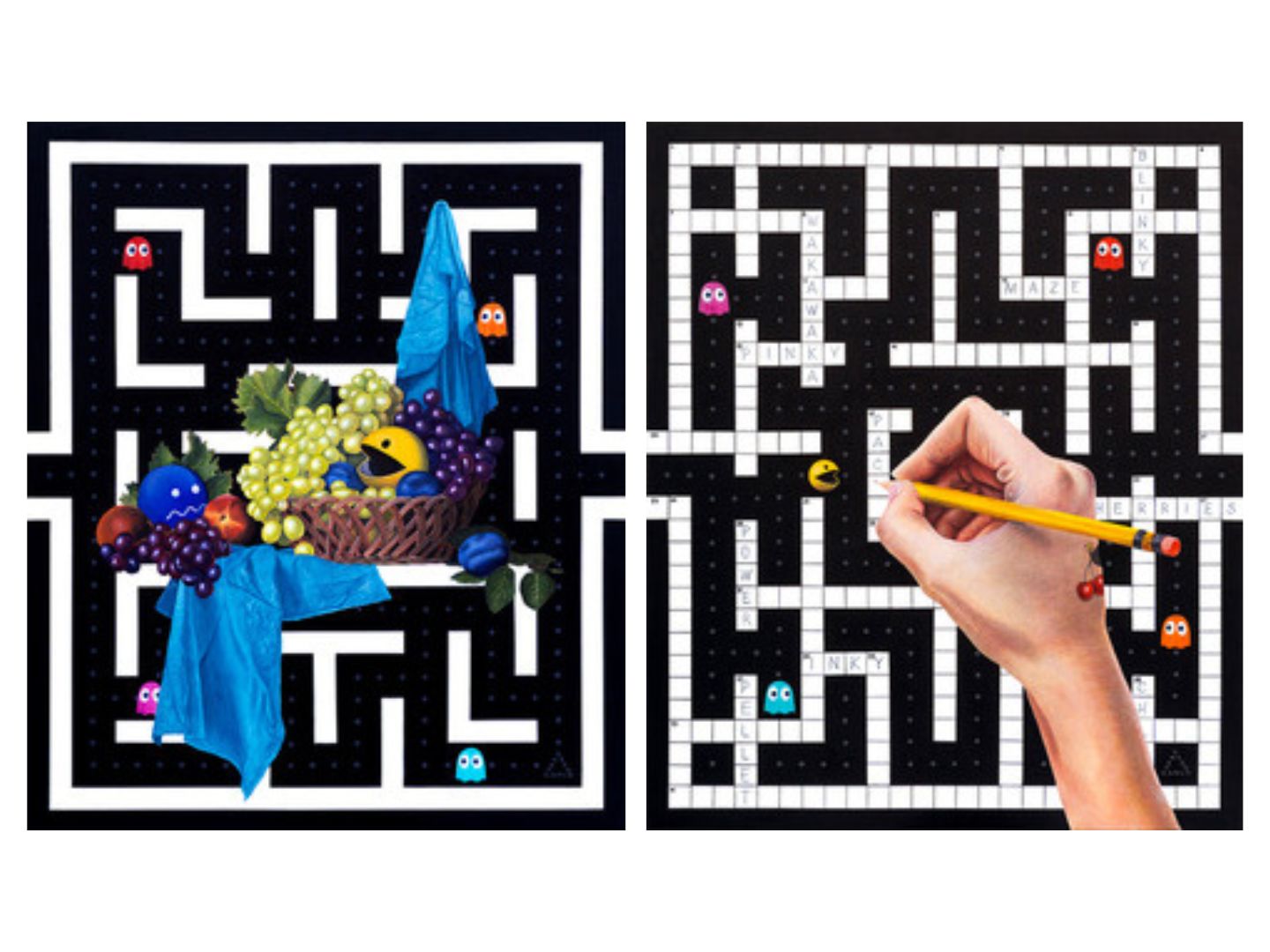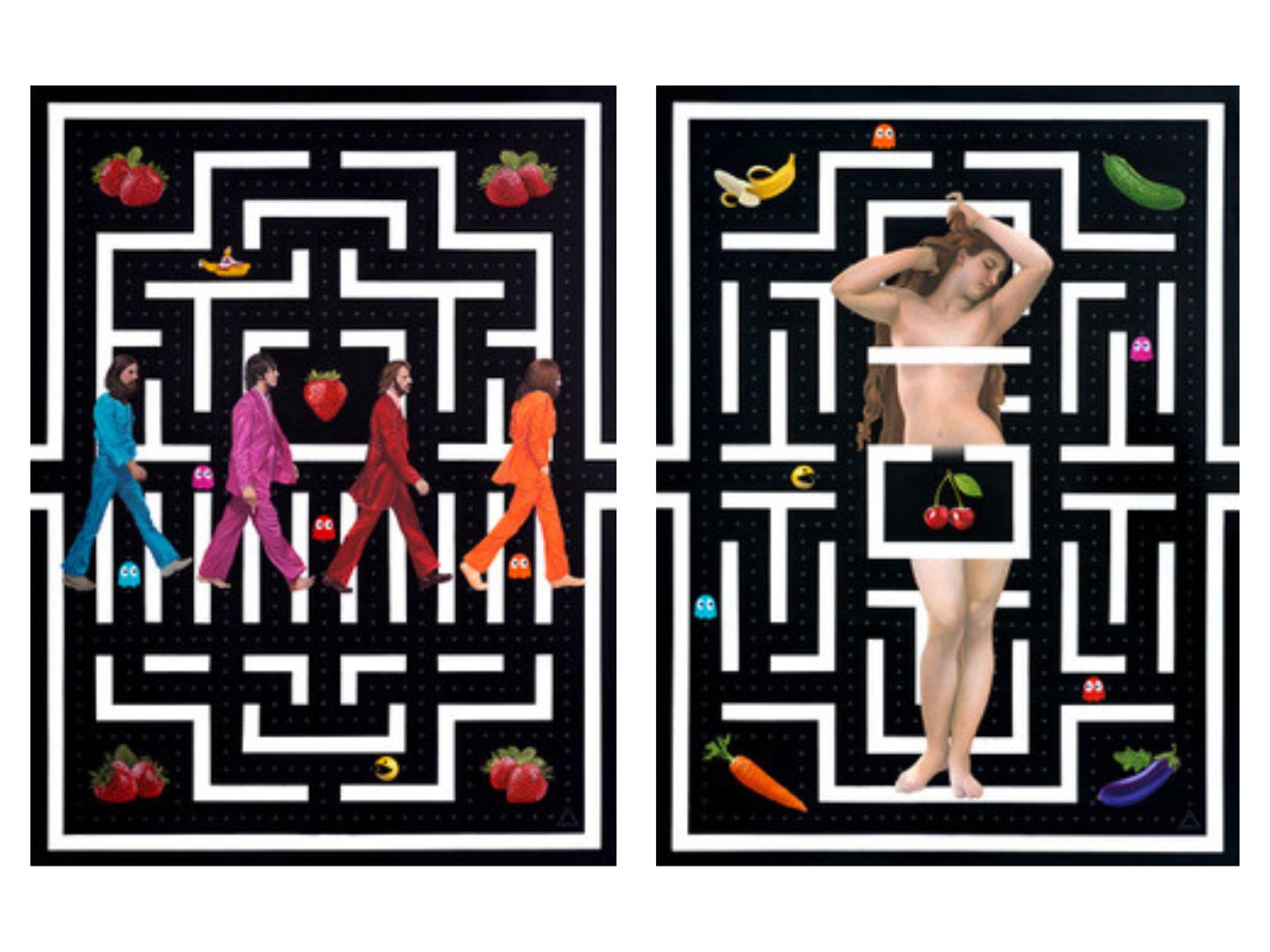'Waka Waka' art exhibition: A mesmerizing journey into nostalgia and pop culture
The show is doubly significant as it is also the gallery's 10th anniversary offering
By MB Lifestyle
Artist Carlo Tanseco introduces a fresh series of paintings in his 7th solo exhibit, inviting us to embark on a mesmerizing visual exploration of our wellsprings of nostalgia.
Commencing on Sunday, Oct. 17 at the J Studio Gallery, this exhibition holds a dual significance, as it also marks the gallery's commemoration of its 10th anniversary.

Aptly called "Waka Waka," the series features acrylic on canvas artworks depicting the artist’s take on the beloved legendary world of video game Pac-Man. In what has become his signature painting style, Tanseco meticulously detailed the all-too familiar maze and super-imposed hyper realistic images that are closely linked to the game’s different spell-binding levels and origins.

Portals to happy times
Tanseco’s art has been said to have the ability to transport one to another world. In "Waka Waka" each painting becomes a portal to the past—the image of the classic yellow insatiable circle gleefully chomping its way through a maze filled with vibrant ghostly adversaries and dreamy vivid rewards, inviting art enthusiasts to relive the thrill of their gaming youth, bringing in the rush of countless hours spent chasing high scores, and resurrecting the thrill of the classic arcade (or home console) game.
The artist admits he embarks on a nostalgic trek with every series of artworks he creates, relishing his creative flow while re-experiencing the joy of losing track of time exploring different worlds in his formative years. It was no different for this series. “I grew up playing and loving this game, its characters, its challenges, elements, and even the backstory of this arcade favorite,” he shares.
And just as national history, pop culture greats, magical realism novels, and robots of his previous works, the enduring worldwide and multi-generational appeal of this computer game must also have taken part in the development of many a mind explorer among today’s art enthusiasts.

The signature style
Creating intricate and elaborate designs with a paintbrush to serve as backdrop is no easy task, especially in today’s copy-paste digital age, but it’s a phase in Tanseco’s painting process that he enjoys. “It has a zen effect on me,” the artist who has been known as a perfectionist reveals.
Like his past works, the repetitive pattern in each canvas in this set is as much of an eye-drawer as the finely detailed images superimposed. Tanseco explains, "The main element of the game is the maze. I have always been drawn to the form of the maze and labyrinth, often drawing them as a kid. I think it’s because of the thrill and sense of adventure they represent, for their structure, and in this case, their graphic nature. I like the idea of the quest that comes with the stories of mazes in historical myths. I also liked that it symbolized that the choices you make, as simple as ‘do I turn left or right’, can spell your success or failure. Just like the maze which is life.”

He adds, "Another element of the game that is iconic to me are the fruits that the player, as Pac-Man, must eat for extra points. For me, they were irresistible. I have chosen the fruits as one of the main elements to highlight in these works. So, most of my paintings show a re-interpretation of the game's maze and various fruits as goals.”
The hyper-realistic images on some pieces depict parallelism which Tanseco had made between the game's various elements and with life— while others pay homage to the history of the game's creation. They represent where the artist’s mind free associates the game’s memorable aspects with familiar real-life figures. Iykyk, as they say—lovers of the game would get it at the very least, but even more interestingly, these captivate and prod one into a unique explanation or even spark a debate.

Dopamine Art
Just like the sold-out paintings and installations in his past shows, the artworks in Waka Waka don’t stop at being depictions of a pop culture icon; they are a transcendental experience that taps into the very essence of nostalgia.
Scientific research has revealed that seeing an image, especially one that evokes positive emotions, triggers a rush of the happy hormone Dopamine. One can argue that choosing to be enveloped by this feeling, especially in the past years that we have spent relatively unprecedented periods of time at home has spurned a growing popularity. The trend of filling personal spaces with pieces that resonate with one emotionally, reflect one’s personality, spark happy recollection, or as trend forecasters have described,” reclaim the jolt of jubilation once felt in possessing so much unabashed freedom,” is currently called to be more than a passing phase.
As dopamine fashion and decor have found a captivating niche in the world of art, Tanseco’s paintings have definitely transcended mere wall décor, in this particular case, becoming windows to the past that flood the viewer with feelings of happiness and yearning for that stage when joy meant hours of chasing rewards, skillfully capturing the essence of a cherished life phase, where Pac-Man was king of the arcades and chasing ghosts and gobbling pellets was the ultimate source of enjoyment.
His own jolt of jubilation
“In creating and completing the 17 Waka Waka paintings and nine sculptural objet d’art, I relived the many years of my life I frequented the video arcades in Greenhills and Makati, particularly playing Pac-Man, and even more particularly the moments when the fruit which corresponded to bonuses appeared. These moments were fleeting, and I had a second to gobble each bonus up before it disappeared—sometimes at the risk of losing a life. I guess this attraction to acquiring this fruit before it disappears reveals a side of me that seizes the moments or the opportunities life offers despite some possible risks. This collection brought me back to happy times when, at the cost of a peso coin, you are transported into an eight-bit universe (not yet metaverse) where you lose yourself in the thrill of an adventure before you go home and do your homework,” Tanseco shares.
Grownups at the heyday of the famous game would shake their heads and wonder if their kids’ brains were getting gobbled up while absorbed in the intricacies of levelling up. That is, until perhaps they themselves got hooked, because those moments had to mean more than blinking lights and managing tricky maneuvering of joysticks. The artist muses, “That’s what Pac-Man meant to me then and now, in retrospect. What did it mean for you?”